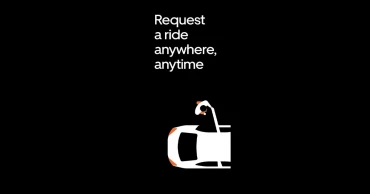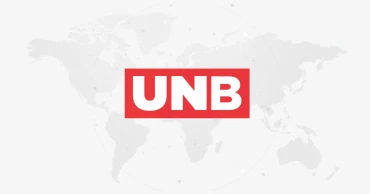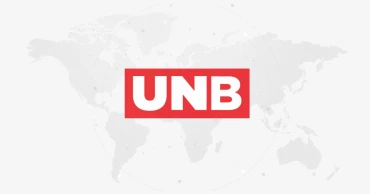Ridesharing
Informal bargaining overtakes app-based ridesharing in Bangladesh!
Passengers and riders in Bangladesh are increasingly bypassing app-based ridesharing services, opting instead for on-the-spot bargaining, causing security concerns as the formal system is being neglected, complained users.
Ridesharing services, introduced through mobile apps or websites, initially gained popularity due to their speed, affordability and convenience compared to public transportation.
Despite the initial success, the sector is now struggling with growing dissatisfaction among both passengers and drivers.
Complaints against ridesharing companies have surged, but the Bangladesh Road Transport Authority (BRTA) has been unable to act due to the absence of robust regulatory guidelines.
Traffic congestion escalates in Narayanganj city due to rules violation
Jubair Khan, a resident of Khilgaon, shared his frustrations, “Using apps was once hassle-free and efficient. Now, finding a rider through apps is expensive and difficult. We often have to go to main roads to find rides.”
Declining Usage and Non-renewal of Licences
While global ridesharing usage is on the rise, Bangladesh has witnessed a sharp decline in bike-based ride-hailing. Of the 15 registered ridesharing companies, only two—Pathao and Uber—have renewed their licences, indicating their continued dominance. Thirteen companies have failed to renew their licences, with some withdrawing from the market altogether.
Globally, the ridesharing market grew from $61 billion in 2018 to $218 billion in 2025, with projections to reach $285 billion by 2030. Over 100 million people are expected to use these services within the next three years.
In Bangladesh, however, drivers like Shankar have been avoiding app-based platforms. “We no longer use apps frequently as bonuses and discounts have been removed. Serving passengers on the road is easier,” he said.
Economic and Operational Challenges
As of January 2024, Dhaka had 4.3 million registered bike riders. However, drivers claim unregistered riders outnumber the registered ones, creating a saturated market.
Full-time drivers earn between Tk30,000 and Tk50,000 per month, while part-time drivers make Tk12,000 to Tk15,000. Yet, many drivers face financial strain. Mintu Mia, an Uber driver, outlined his daily expenses: earning Tk3,500 from rides, he spends Tk3,154 on Uber commissions, fuel, platform fees, booking fees, meals, and rent, leaving him with just Tk346 in savings.
Rising interest payments reflect growing dependence on loans, increasingly from foreign sources
Beyond financial struggles, drivers endure physical and environmental risks daily.
Proposals for Reform
The Dhaka Ridesharing Drivers’ Union recently met the Labour Reform Commission to propose key reforms.
According to union president Sajib Hossain, the proposals include amending the current ride-sharing policy, setting a fair fare structure, capping commission rates, eliminating platform and booking fees, and ensuring drivers are not penalised for carrying illegal items on behalf of passengers.
Additional measures, such as introducing waiting and cancellation fees and forming a dedicated regulatory commission, were also recommended to protect drivers’ rights and sustain the sector.
The Labour Reform Commission has proposed including drivers in the Somota pension scheme, part of the Universal Pension Scheme for low-income individuals. Under this scheme, drivers would pay Tk500 monthly, matched by the government, to secure a pension of Tk1,530 per month after 10 years.
Safety Initiatives
Ridesharing companies have emphasised the importance of using apps to ensure passenger safety. Apps allow users to track rides, view driver details, and report misconduct.
Pathao and Uber launched a joint campaign to enhance safety standards and customer experiences. This initiative includes driver training on safety measures, document verification, and awareness programmes.
Ailing VAT collection: NBR wants answers from field level offices
Legal Framework
The BRTA has approved 12 ridesharing companies under the Ride-sharing Service Guidelines 2017, introduced to legalise and regulate the sector. These include Pathao Limited, Uber Bangladesh Ltd, and others.
While app-based ride-hailing services began in Dhaka in 2015, the cabinet approved the “Ride-sharing Service Guideline 2017” in 2019.
The BRTA mandates that ride-sharing cars adhere to fare limits set under the Taxicab Service Guidelines 2010, which specify a base fare of Tk85 for the first two kilometres and Tk34 for each subsequent kilometre, with a waiting charge of Tk8.50 every two minutes.
Despite these measures, the sector’s future remains uncertain as it struggles to balance passenger convenience, driver welfare, and regulatory oversight, said many users.
1 year ago
Does Uber in Bangladesh offer hassle-free service?
Riddled with complaints of harassment and inconvenience from commuters, ride-sharing service Uber in Bangladesh is taking a hit in terms of reputation.
Issues like failure to pick up passengers in time, transferring ride requests from passengers to other drivers, multiple cancellations of rides, exorbitant fares and not accepting bKash payments are forcing many regular users to abandon it.
On September 16, this correspondent called for an Uber ride to go from Baridhara J Block to Badda. The trip got cancelled three times, and Uber charged Tk 30 from the bKash account without providing any service.
Read:Uber marks 5th anniversary, pledges to curb noise pollution
Jannatul Begum, who works at a private company, had to go through the same ordeal last month. One morning, she called for an Uber ride to go from Bashundhara to Paltan. Her trip got cancelled twice. The first driver had accepted her ride request but informed 30 minutes later that the trip has been cancelled due to gas shortage.
The first driver then transferred Jannatul’s ride request to a second driver, who, after taking 20 minutes, informed her that he too won’t be able to make the ride. The office-goer then had to take a CNG-run three-wheeler.
“I would’ve managed some other vehicle had I known that my trip will be cancelled after confirmation. Besides, fare of an Uber trip from Bashundhara to Baitul Mukarram in Paltan is around Tk 800-900, which is very high compared to other types of rides. That’s why I’ve stopped using Uber,” Jannatul said.
Read:Uber, BRTA celebrate National Road Safety Day 2021
Mehedi Hasan had been a regular user of Uber before he stopped. While talking to UNB, he discussed some issues which are behind the gradual decline of the ride-sharing service.
“Nowadays, passengers can’t find Uber rides when needed. Drivers also don’t want to make the trip if they don’t like the destination. Fares have also gone up, and many drivers are unwilling to accept bKash payments though Uber has added that as an option,” Mehedi said.
Asked about these issues, Bangladesh Road Transport Authority (BRTA) Chairman Nur Mohammad Majumder told UNB that they will look into the complaints made against Uber and take legal steps if any passenger is found to have been harassed.
Read Best Ridesharing Apps in Bangladesh
“We had permitted Uber to operate here with a view to ease the commuting issues. In order to keep its operations running, Uber has to provide services considering the best interests of the passengers. There are certain conditions that Uber has to follow, and one of them is preventing harassment of passengers at any cost,” said Nur.
About high fares, the BRTA chairman added that another condition that Uber must follow is to keep the fare reasonable.
“Uber has to set the fares considering the present situation. We’ll definitely fine Uber if we receive complaints of charging excessive fares,” Nur added.
Read: Uber partners with Bangladesh Red Crescent Society
Contacted by UNB through its public relations agency in Bangladesh, Benchmark PR, Uber acknowledged the issues.
“Long waits and driver cancelling trips fall short of our promise to deliver a magical experience to riders. We are working hard to address this and have launched a slew of new features for driver partners,” it said.
It further said, “To remove frustration for riders and drivers alike, we now show trip destinations to drivers upfront before they decide to accept the ride. We are also showing drivers the mode of payment (cash or online) before the trip starts. In case of any concerns while using our platform, we also encourage our users to raise complaints through the app for timely and efficient resolution.”
Read Uber Adds Auto-Rickshaws in Dhaka: Transportation Aggregation and Competition
3 years ago
DMP explains directives on ridesharing during lockdown
The Dhaka Metropolitan Police (DMP) on Monday requested the bikers to desist from ridesharing to prevent the rise of coronavirus transmission.
Ridesharing operators were often seen sharing motorcycle rides during lockdowns. As a result, different people had been using the same helmet again and again increasing the risk of coronavirus infection.
READ: No motorcycle ride-sharing from Thursday
In this situation, DMP encouraged a one-person bike ride for emergency movement in the city, said a media release.
However, people were requested to use rickshaws following health guidelines for emergency movement.
READ: Dhaka City Election: Ban on motorcycles movement from tonight
The government this week announced a partial lockdown from June 26 to July 1, on which date it would turn into a strict lockdown to prevent the rising spread of coronavirus.
4 years ago
No motorcycle ride-sharing from Thursday
Bangladesh Road Transport Authority (BRTA) has imposed a ban on operating app-based motorcycle ride-sharing services amid a recent surge in Covid-19 infections and fatalities. The ban will be effective for two weeks until further notice, it said.
BRTA issued a circular in this connection on Wednesday (March 31, 2021) and sent the directives to the service providers.
Also, the government on Wednesday raised the fares of all buses across the country by 60% as no public transport would be allowed to carry more than 50% of their capacity.
Also read: Bangladesh reports record number of 5,358 new daily Covid cases; 52 deaths
The Prime Minister's Office on Monday issued an 18-point directive for the next two weeks to contain the spread of the Covid-19 in Bangladesh.
The ministry proposed partial lockdowns for some places with higher Covid-19 transmission rate, Health Minister Zahid Maleque said on the same day.
Bangladesh recorded 52 Covid-19 deaths in the last 24 hours until Wednesday, the highest single-day death toll in seven months.
Also read: Best Ride Sharing Apps in Bangladesh
Besides, the country's health authorities recorded over 5,000 fresh cases for the third straight day.
The latest figures showed 5,358 new cases in the past 24 hours, which pushed the caseload to 611,295, according to the Directorate General of Health Services.
This is the highest daily infection since the pandemic began.
Read How to Use Ridesharing Vehicles Safely during COVID19 Pandemic
4 years ago
Best Ridesharing Apps in Bangladesh
Do you want to avoid the everyday struggle of managing transport to attain office, workplace, or college? The painstaking efforts of riding an overloaded bus or convincing an arrogant CNG driver can ruin your mood at the beginning of the day. Besides the common risks like accidents, harassment, and pick-pocketing, public transports are risky places for coronavirus contamination. In this situation, on-demand ride-sharing apps can serve as a windfall for the mass people who can hardly afford personal transports. Today we are going to discuss the best ride-sharing apps in Bangladesh. Stay with us!
5 years ago








